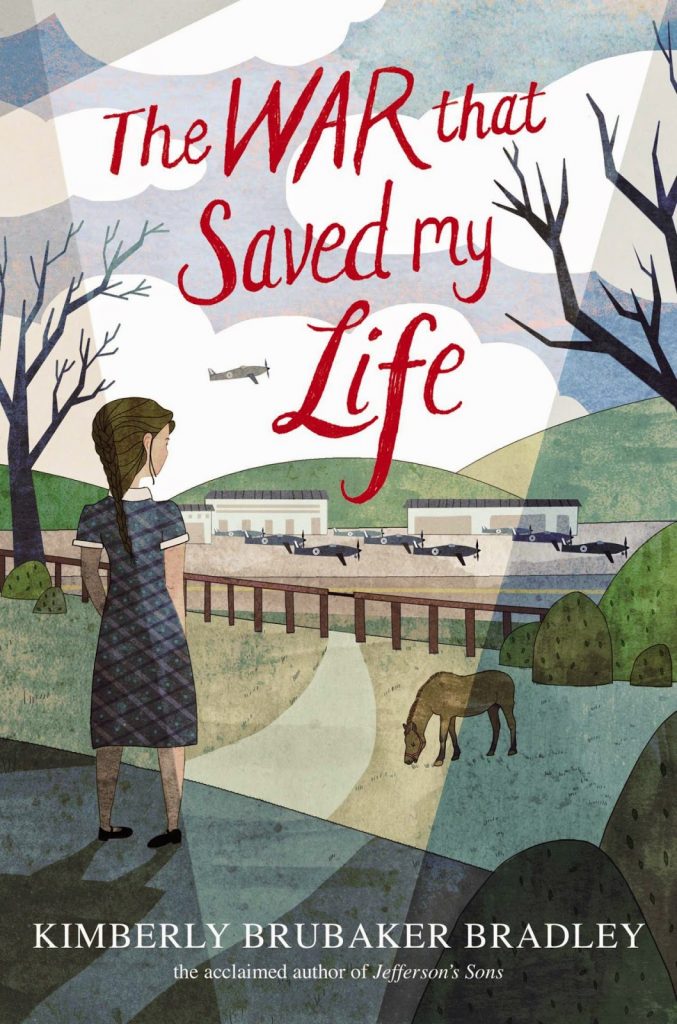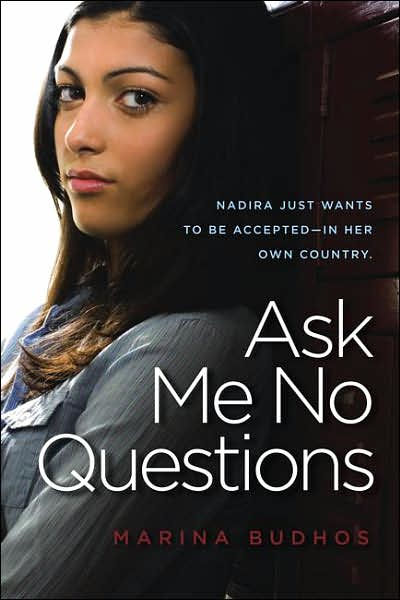
1. Bibliography
Bradley, Kimberly Brubaker. 2015. The War that Saved My Life. New York: Dial Books for Young Readers. ISBN 9780803740815
2. Plot Summary
Ada has a clubfoot. According to her mam, that makes Ada practically worthless. Mam won’t have Ada going outside, showing her “shame” to all of London, so even though Ada is a very bright ten-year-old, she isn’t allowed to leave her mother’s flat with her younger brother Jamie. Not ever. Not even to use the restroom. And if Mam is having a bad day, she’ll hit Ava. Sometimes, she’ll even lock Ada under the sink to spend the night surrounded by cockroaches.
When Ava learns that Jamie is being evacuated from London to the countryside along with many of London’s children, she decides to go too, even though Mam forbids it. Ava and Jamie end up in the city of Kent under the care of a woman, Susan Smith, who doesn’t want to take them. Slowly, Ava and Jamie crack Susan’s prickly exterior and they learn to trust her too. They also learn to read, to write, and—Ava’s favorite activity—to ride horses. But battle is brewing and it’s going to take everyone in England to help with the war effort—Ava included. Two questions remain on Ava’s mind: Will England survive World War II? And will Mam come to take her back?
3. Critical Analysis
It’s normal to see a disabled character navigate life in a contemporary setting. Less commonly seen in disability literature is a character from the past, for example one who lived in England during World War II. Enter Ada, a girl with a clubfoot. Not only does placing a disabled child in history grant abled children the opportunity to see a disabled child in a new context, it tells disabled children today that they also have a place in history and an important story to share with the world.
However, Ada’s clubfoot does not define her story. As Ada learns to say, her “foot’s a long way from [her] brain.” Ada’s foot sure doesn’t prevent her from learning to read, write, make a friend, ride a horse, or spot a spy. And Ada never wallows in self-pity because of her disability or asks readers to feel bad for her because of it. Brubaker’s superb writing has made it easy for readers to see Ada not as a disabled character to be pitied but as a heroine to be admired for her determination and courage to stand up to an abusive mother and always protect her brother.
And in fact, Brubaker places Ada’s emotional challenges front and center, rather than her physical ones. The real war that Ada fights is an internal one, a battle against her own feelings of unworthiness and ineptitude because of the way Mam has treated her. Ada’s journey from a prickly pear who feels hatred and fear to a confident girl who learns to trust and feels joy is a convincing one, and one that doesn’t dissolve into an unbelievable happily ever after. When Ada has a panic attack after being placed in the Anderson shelter because it seems like the cabinet her mam shoved her in, readers can understand Ada’s terror. Ada’s Anderson-induced panic attacks never go away, a writing choice that I greatly admire. Brubaker does not gloss over or downplay the emotional damage that has been done to Ada and she certainly doesn’t imply that Ada is “fixed” of all the abuse she has experienced for the past ten years because she’s been placed in a better situation for a mere few months. This writing choice validates the experiences of so many people who may take many years to heal from emotional damage.
With exceptional character development, realistic depictions of emotional abuse and its consequences, and an original historical story about one endearing girl, this book is gold. It’s no wonder that this was a Newbery honor title. The War that Saved My Life is a story that belongs on every middle grade bookshelf.
4. Rewards and Review Excerpts
Cybils Awards, 2015, Nominee, Middle Grade Fiction
Goodreads Choice Award, 2015, Nominee, Middle Grade
John Newbery Medal, 2016, Honor
Odyssey Award, 2016, Winner
Parents’ Choice Award, 2015, Gold, Fiction
Schneider Family Book Award, 2016, Winner
From Kirkus: “Ada’s voice is brisk and honest; her dawning realizations are made all the more poignant for their simplicity. With Susan’s help and the therapeutic freedom she feels on horseback, Ada begins to work through a minefield of memories but still harbors hope that Mam will accept her. . . Ignorance and abuse are brought to light, as are the healing powers of care, respect and love. Set against a backdrop of war and sacrifice, Ada’s personal fight for freedom and ultimate triumph are cause for celebration.”
From Booklist: “The home-front realities of WWII, as well as Ada s realistic anger and fear, come to life in Bradley s affecting and austerely told story, and readers will cheer for steadfast Ada as she triumphs over despair.”
5. Connections
Include The War That Saved My Life in a display about World War II which may also include the following books:
- Albus, Kate. A Place to Hang the Moon. ISBN 9780823447053
- Takei, George. They Called Us Enemy. ISBN 9781603094504
- Korman, Gordon. War Stories. ISBN 9781338290202
- Bustard, Anne. Blue Skies. ISBN 9781534446069
Kimberly Brubaker Bradley has written many books and won many awards. Create a display of some of her books. The following are possible options:
- Fighting Words. ISBN 9781662254185
- Jefferson’s Sons. ISBN 9780803734999
- The War I Finally Won. ISBN 9780698197138
- Leap of Faith. ISBN 9780803731271
- For Freedom. ISBN 978038572961

